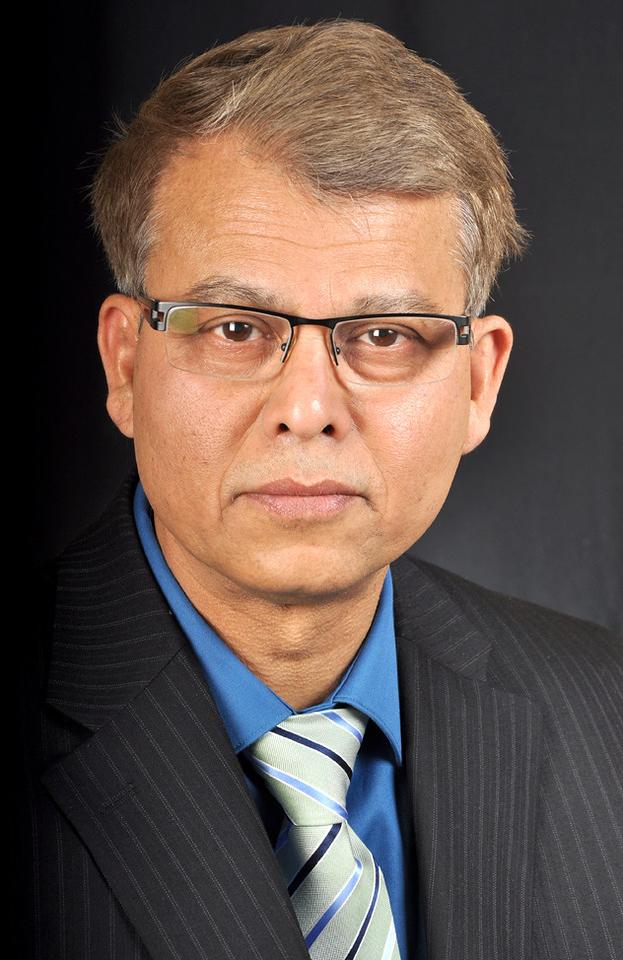Rahman presents at regional communication conference

CHADRON – A recent research paper by Dr. Shafiq Rahman, associate professor of communication arts at Chadron State College, was recognized by peer reviewers as one of three top papers in the Political Communication division during the Eastern Communication Association’s 2015 conference.
Although Rahman could not attend the conference in Philadelphia, Pennsylvania, April 22-26, he recorded his presentation, which was played for conference attendees.
Rahman conducted the study and wrote the paper, “College Students’ Use of Social Media and Their Participation in the 2012 Presidential Election,” with support of a research institute grant from Chadron State College.
“I’m very grateful for the funding which made it possible for me to hire an assistant to tabulate the survey results. I think it is important to conduct research. It contributes to the academic atmosphere of the college,” he said.
The paper explores how 557 Chadron State College students self-reported their use of social media for accessing information on the 2012 U.S. Presidential Election. Sixty-two students responded to the survey using a link posted by the faculty on CSC Online, while 495 completed a paper survey in class.
“Building on previous studies of political use of the Internet and social networking sites, this study has extracted various motivations of social media use that are associated with participants’ self-reported knowledge of issues pertinent to the election,” Rahman said.
His study results indicate that surveillance, social utility, and attachment functions of social media predict participants’ acquisition of political issue knowledge. The level of college students’ knowledge of issues, in turn, had a direct correlation to their likelihood to vote in the 2012 Presidential Election.
Surveillance, or the watchdog role, was measured with survey questions about how students judge personal qualities of candidates, decide about issues and determine what candidates will do if elected, according to Rahman. Social utility refers to information that gives students something to talk about with their peers, helps them follow debates and encourage others to vote. Attachment is the level of comfort the participants have with social media.
Rahman plans further research into another survey he conducted with students from multiple college following the 2012 Presidential Election.
He also presented information from his study of the Pew Research Center database regarding social media and civic engagement at a regional Popular Culture Association conference in New Orleans, Louisiana, April 1-4.
Rahman and Dr. Robert Knight, CSC associate professor and department chair of Social and Communication Arts, are collaborating on an Essential Studies Program capstone course about the relationship between social media and civic engagement that will be available within the next year.
—Tena L. Cook, Marketing Coordinator
Category: Campus News
